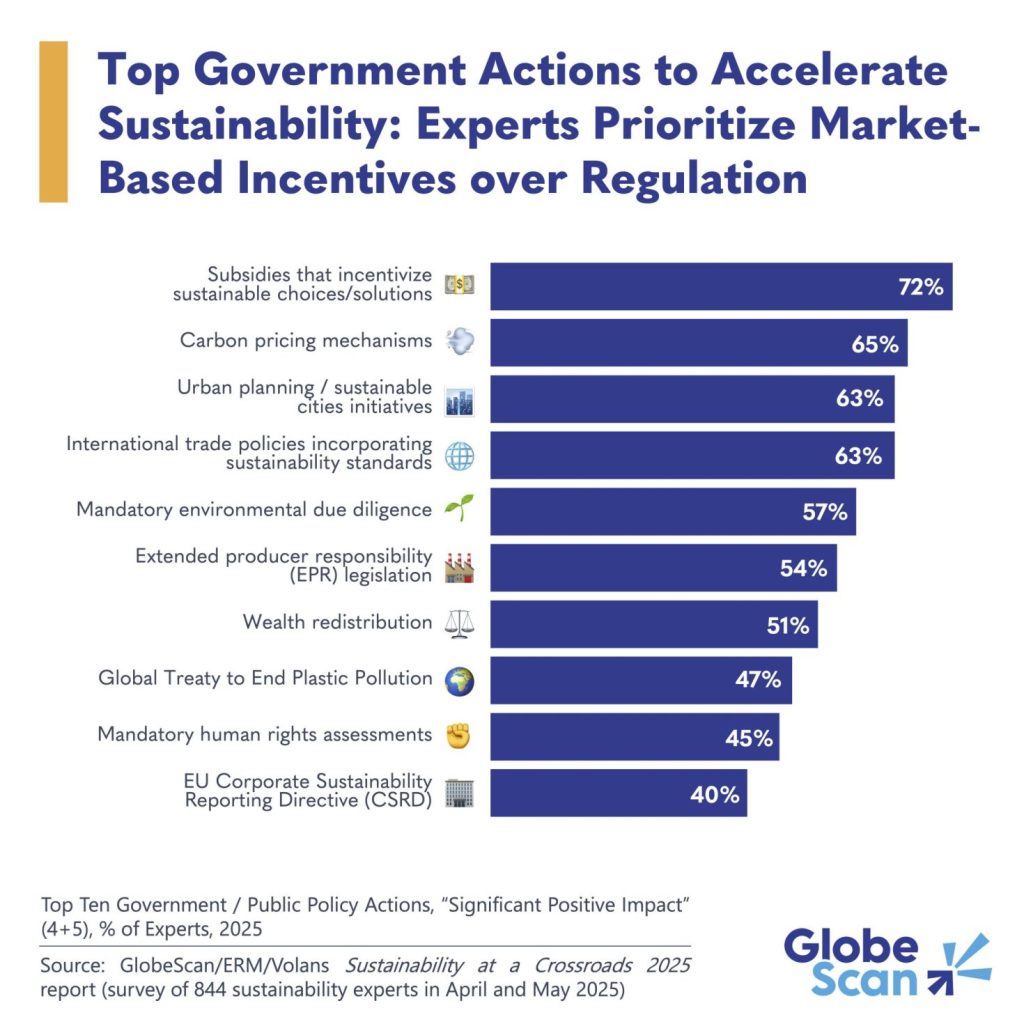Experts favor incentives over regulation to accelerate sustainability
Experts favor incentives such as green subsidies and carbon pricing over compliance-based approaches. Read More

- Experts say incentives such as subsidies followed by carbon pricing are the most powerful tools for driving sustainability.
- Systemic straggies, such as urban planning and trade policies with sustainability standards, are also seen as high-impact.
- Compliance tools like CSRD are valued but seen as less effective without strong financial incentives.
Sustainability experts are eschewing regulation in favor of government incentives as a way to drive sustainability progress.
In a survey conducted by Trellis data partner GlobeScan, in collaboration with ERM and Volans, sustainability professionals said financial incentives and market mechanisms are widely seen as the most powerful tools for governments to advance sustainability in the next five years.
Subsidies promoting sustainable behaviors tops the list, with 72 percent of experts rating them as high-impact. This is followed by:
- Carbon pricing mechanisms (65 percent)
- Urban sustainability initiatives (63 percent)
- International trade policies with sustainability standards (63 percent)
While regulatory and compliance-focused tools such as mandatory due diligence (57 percent) and corporate reporting frameworks such as the EU CSRD (40 percent) are also seen as part of the solution, they’re viewed as less effective without complementary financial drivers.

What this means
The message to policymakers is clear: align economic incentives with environmental goals to achieve faster, broader progress. Regulatory frameworks still matter, but their impact is limited unless they’re paired with scalable financial levers that change behavior and business models at pace. As we approach 2030, the most effective strategy will likely be a hybrid approach that combines smart regulation with strong market-based incentives. This signals an important shift in how governments should structure sustainability policy to drive measurable impact.
Based on a survey of 844 sustainability practitioners across 72 countries conducted April-May 2025.

Subscribe to Trellis Briefing
Featured Reports

The Premier Event for Sustainable Business Leaders
















